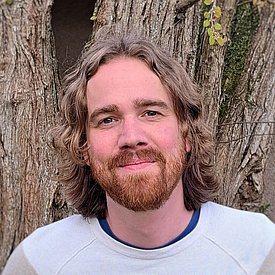Seminar: Monitoring Drought-Induced Tree Mortality as an Ecological Process
Date:
Location:
WSL Birmensdorf, Hörsaal
Organised by:
Biodiversity Center, WSL
Speakers:
Jelle Lever, WSL
Moderators:
Arthur Gessler, WSL
Languages:
English
Type of event:
Presentations and colloquia
Audience:
Anyone interested in the topics
This a joint seminar co-organized by SwissForestLab and the WSL Biodiversity Center.
Abstract ¶
Drought is expected to become one of the most important global drivers of forest dieback under climate change. Yet predicting when and where tree mortality will occur remains difficult because drought responses differ among forest types, species, and individuals (e.g., due to life history or genetic traits). Mortality often results from a chain of ecological events—such as carbon starvation, hydraulic failure, or reduced resistance to insects and wildfires—and depends on how drought severity changes in intensity, frequency, and duration.
Because the sequence of these events can vary across species, their survival strategies, and drought histories, i.e. their frequency, intensity, and duration, drought-induced mortality should be viewed as a complex ecological process rather than as an isolated event without preceding changes. We propose to monitor this process as a progressive loss of resilience, or increasing stress perceived as droughts intensify or recur. This perspective allows tracking of indicators along the entire pathway from a healthy tree or forest to mortality or degradation, from early, reversible signals to later, high-certainty indicators (e.g., structural damage).
By linking generic resilience theory with process-based stress metrics (e.g., hydraulic, gas-exchange, and photosynthetic changes), we aim to improve understanding of mortality mechanisms and support early warning systems from individual trees to entire biomes.
About the speaker ¶

Jelle is a biologist (BSc, Utrecht University) and environmental scientist (MSc, Utrecht University) by training. He completed his PhD at Wageningen University in the Netherlands and the Doñana Biological Station in Seville, Spain, where he studied the structure and stability of complex ecological networks—such as food webs and mutualistic interactions—within the field of theoretical ecology. After his PhD, he held several postdoctoral positions at the Swiss Federal Research Institutes Eawag and WSL, using global satellite data to investigate how climate change affects seasonal vegetation dynamics and forest ecosystems.
How to join ¶
Our public seminars are hybrid, with the option to attend in-person or online.
Zoom webinar: link (ID: 650 3334 2319, Password: 348826)
Contact ¶
How to get here ¶
Zürcherstrasse 111, 8903 Birmensdorf
By public transport ¶
Bus stop Birmensdorf ZH, Sternen/WSL
Accessible by bus lines 220 and 350 via Wiedikon/Triemli or via Birmensdorf station with S-Bahn lines 5 and 14.
By car ¶
See map on map.search.ch or Google Maps
You'll find guest parking spaces (for a fee) behind the main building after passing the main entrance.
